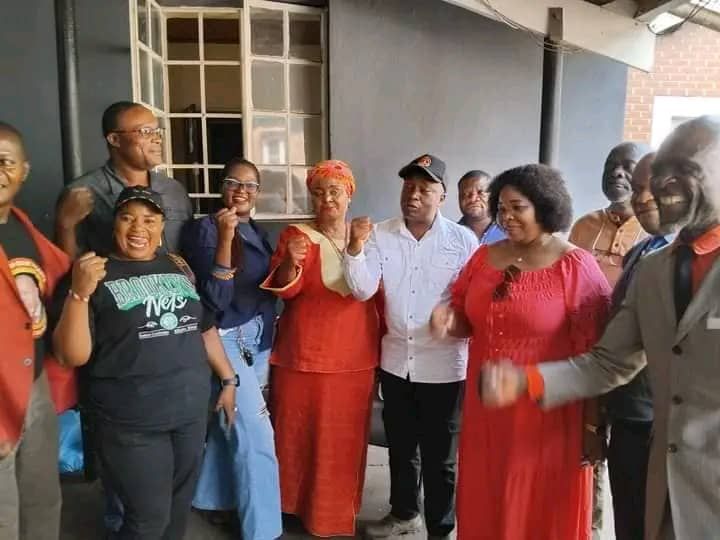By Burnett Munthali
On Friday 25 October 2024, the Malawi Human Rights Commission (MHRC) delivered a pointed criticism of what it described as unconstitutional and unlawful practices by the Malawi Police Service (MPS) in handling arrests. The MHRC expressed deep concern over the trend of detaining suspects without gathering adequate evidence and criticized the unlawful seizure of personal property, such as mobile phones, without a court order.
Peter Chisi, the MHRC’s Director of Political Affairs and Civil Rights, emphasized the need for law enforcement to operate within the bounds of the Constitution, noting that arbitrary seizure of personal belongings, such as phones, is not only intrusive but also illegal without proper judicial authorization. “It is unconstitutional to grab someone’s phone without court orders,” Chisi stated, underscoring the critical importance of respecting due process.

Chisi further expressed dismay at the police’s failure to comply with the legal requirement to present suspects in court within 48 hours, as outlined in the Constitution. Detaining individuals beyond this period without court appearances is a violation of their right to due process and fair treatment. “It is mindboggling to see police failing to take suspects to court within the stipulated legal timelines,” Chisi added, stressing that such actions amount to serious human rights violations.
The MHRC has shown its commitment to addressing these concerns by visiting the police station in Area 3, where suspect Kaliati is currently being held. This on-site visit underscores the Commission’s determination to ensure that the rights of detained individuals are not infringed upon and that proper legal protocols are observed.
In addition to visiting Kaliati, the MHRC has pledged to engage Kaliati’s legal team, offering support to ensure that the suspect’s rights are upheld. By working directly with the defense team, the MHRC hopes to expedite the legal process and address any grievances arising from the police’s conduct.
This intervention by the MHRC highlights a growing need for the MPS to reassess its arrest procedures to align with the principles of justice and the Constitution. Arbitrary arrests and delays in presenting suspects in court undermine public trust in the legal system and raise concerns over the protection of civil rights in Malawi.
The MHRC’s active role in advocating for due process is a reminder of the importance of upholding constitutional rights and ensuring that justice is served fairly and transparently for all Malawians.










